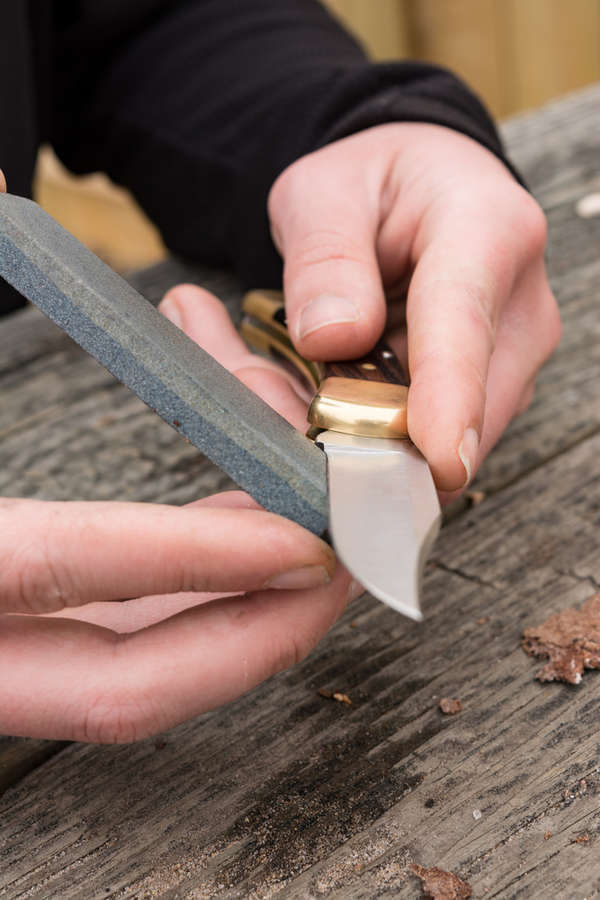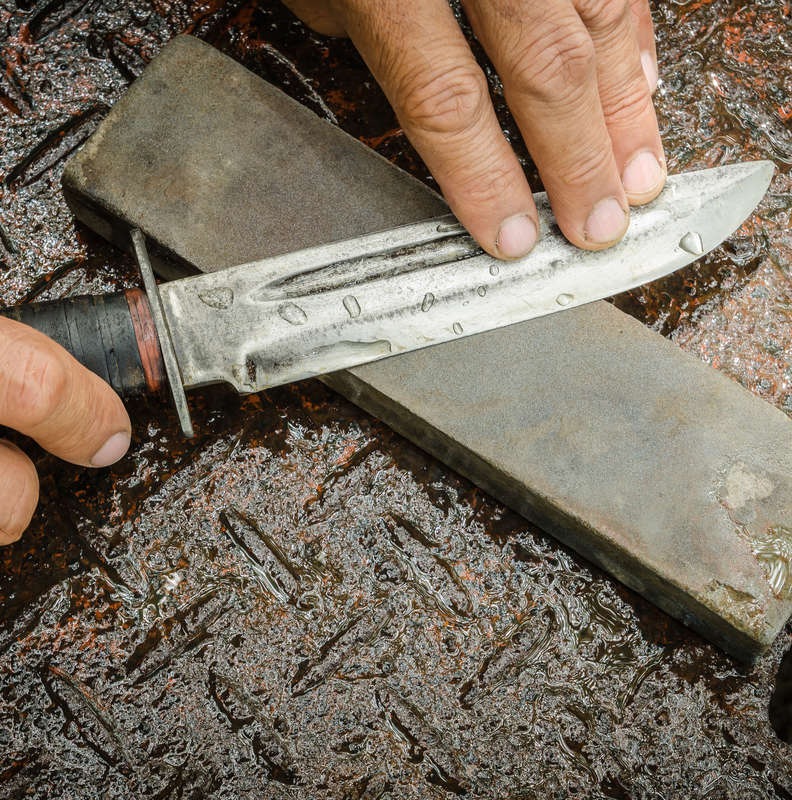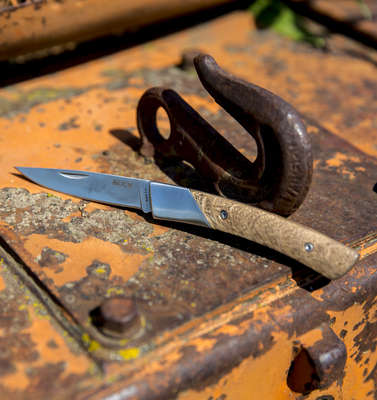Knife Maintenance

Maintaining a Sharp Knife
Buck knives are among the best tools available for cutting, but only for cutting. Throwing, pounding, chopping, or prying with a Buck knife is unsafe and could damage the knife – along with voiding your warranty. In a worst-case scenario, misuse of your knife can result in serious injury.
Buck knives are durable. Proper cleaning and maintenance will ensure that they remain sharp and strong for years to come.
- Keep your knife dry. Store it in a dry place.
- Oil your knife at least twice per year, especially pivot points and the blade.
- Keep your knife sharp – a dull knife is a dangerous knife.
Cleaning Your Knife
You should clean your knife regularly for optimal performance – but avoid immersing it in liquid if you can avoid it and never use harsh detergents. It’s better to use a spray cleaner – and wipe your knife thoroughly dry. Non-abrasive metal polish is good for removing surface oxidation, rust, or tarnish.
Clean and oil your knife regularly to keep it free from sticky residue. Remember to always lubricate your knife after cleaning. We recommend Wax Lubricant – it seals, lubricates, and protects your knife from surface oxidation and moisture that can lead to corrosion.


Preventing Oxidation and Rust
Blue, gray or black discoloration on your knife is a sign of oxidation, which is a precursor of rust and should be removed immediately. Non-stainless steel such as our popular 5160 Carbon Steel knives are vulnerable to oxidation and rust. Regular cleaning and oiling after each use will keep them shiny and rust-free.
Rust is reddish-brown in color. If left untreated, it will eat into the blade of your knife and contaminate your food. Oil can be used to remove light rust. Non-abrasive metal polish should be used to remove heavier rust.
